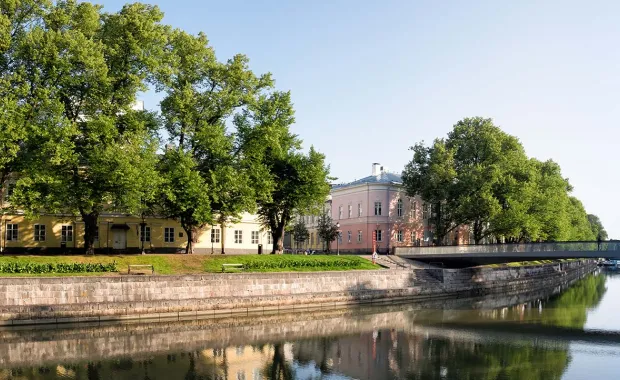CGI and the City of Turku have agreed on an innovation cooperation project to explore and utilize the possibilities of artificial intelligence to improve the cost-effectiveness and services of the city's operations. In the first phase, cooperation will focus on the use of generative AI in the city's customer service.
“Growing economic pressures and labor shortages are forcing cities to reform the way they operate. Productivity growth and innovations are needed to secure the provision of services, and we want to strengthen our own innovation capability through the cooperation with CGI. One of the focus areas of our new IT strategy is also to increase our automation capabilities,” says Rami Savila, Director of Strategy and Development at the City of Turku.
According to Jussi Vira, Development Director at CGI Finland, artificial intelligence will be used in the early stages of the cooperation to improve the city's operations, including streamlining and facilitating the work of customer service personnel.
“We train the AI to serve as an assistant and expert to the city's personnel based on the city's own guidelines. This frees up employees' valuable time from looking up information and browsing through instruction manuals for more productive work as the chatbot is able to provide the right information instantly. We operate strictly in the city's systems and do not export data outside of them. Data fed to the AI does not contain any personal data or other sensitive data,” Vira stresses.
In the first phase, the aim is to implement OpenAI's GPT3 language model, which runs in Microsoft's Azure cloud environment.
Artificial intelligence to serve citizens all over Finland
The cooperation is based on CGI's decision to invest in the development of Smart City services in Finland. The development makes use of the recently launched CGI ICE Lab at the Finnish Innovation Center of Excellence, which specializes in studying the applications of AI, green coding and cloud technologies, among others.
“While Turku increases its understanding of new technologies and their possibilities, CGI will have the opportunity to test new product and service innovations in an authentic environment in this independently funded early-stage innovation project. We develop services that are easy to deploy everywhere—not only in Finland but also internationally,” Vira sums up.
Future applications of AI will also include services aimed directly at city residents, such as customer feedback and guidance. Automation speeds up customer service and makes the city's communications more consistent in terms of content and tone of voice. According to Vira, the City of Turku alone receives about 25,000 instances of feedback from residents during the year.
“Much of the time, residents are looking for answers to simple questions, such as where to apply for a building permit or purchase a bus card. For example, during a snowy winter, Turku received feedback about 1,800 times in a few weeks on the topic of plowing roads. Routine feedback like this can be answered instantly with the help of AI. More demanding questions would be automatically directed to a human. A robot that relies on AI does not get tired and could answer questions even in the local dialect, if desired,” Vira illustrates.
CGI has a long partnership with the City of Turku, and the company is one of the largest employers in the city. CGI employs about 360 specialists in Turku. In addition to Smart City services, Turku is home to one of CGI's product development and service units specializing in the development of patient information systems.




